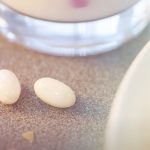
PTC Therapeutics announces new real-world analysis demonstrating Translarna™ (ataluren) slows disease progression in patients with Duchenne muscular dystrophy
La Force is happy to share this press release provided by PTC Therapeutics, Inc. Oct 4, 2019 > PRESS RELEASE <
Lung function data from the STRIDE Registry show a trend toward delay of the decline of pulmonary function compared with those in CINRG Duchenne Natural History
PTC Therapeutics, Inc. announced that data from STRIDE, the first international registry for patients with Duchenne muscular dystrophy due to a nonsense mutation receiving Translarna™ (ataluren), demonstrate that Translarna preserves lung function in children and adolescents compared with a matched cohort in a long-term natural history study. The real-world analysis was presented at the International Annual Congress of the World Muscle Society.
Stuart Peltz, Ph.D., Chief Executive Officer, PTC Therapeutics – “Across ambulation, physical function and lung function, the STRIDE data demonstrate that patients receiving Translarna preserved function for years longer than patients receiving standard of care. These are real-world results that provide clinicians and regulators with the true picture of patient response to treatment.”
Researchers evaluated FVC, a traditional measure of lung function in Duchenne patients that correlates with disease progression and mortality. The STRIDE data showed that 32.1% of the standard of care patients from the natural history cohort had an FVC of <50%, compared to only 2.2% of patients receiving Translarna after a mean total exposure of 633 days. The data also indicates that Translarna significantly preserved patients’ ability to stand up from lying and climbing stairs compared with natural history.
After the loss of ambulation and loss of the use of the arms, the respiratory muscles of people with Duchenne start to progressively deteriorate, leading to the risk of life-threatening respiratory complications and the need for ventilation support. Patients with a predicted FVC of <50% are considered to be in the late non-ambulatory stage of Duchenne. To conduct the analysis, patients from the STRIDE Registry were matched against a comparable cohort of patients from the Cooperative International Neuromuscular Research Group Natural History Study, based on their propensity for disease progression.
These latest data build on the STRIDE registry – time-to-event analysis, which demonstrated that the median age at which patients on Translarna lost the ability to stand up from lying in under 5 seconds (the first key clinically significant Duchenne milestone) is 12 years – 3 years later than seen with natural disease progression in untreated children [9.1 years].
Dr. Eugenio Mercuri, Professor, Pediatric Neurology, Catholic University, and author of the study – “Respiratory failure is the primary cause of disability and death in patients with Duchenne and monitoring and preserving lung function is a key clinical priority. As the muscles progressively weaken, breathing and effective coughing gets more difficult and patients. It’s very encouraging to see positive lung function results in a real-world setting and provides reassurance that ataluren is slowing disease progression, eventually become dependent on ventilation support, which is distressing for families.”
The demographic characteristics of the study population from the STRIDE Registry were published in August this year in the Journal for Comparative Effectiveness Research.
About Translarna (ataluren)
Ataluren, discovered and developed by PTC Therapeutics, Inc., is a protein restoration therapy designed to enable the formation of a functioning protein in patients with genetic disorders caused by a nonsense mutation. A nonsense mutation is an alteration in the genetic code that prematurely halts the synthesis of an essential protein. The resulting disorder is determined by which protein cannot be expressed in its entirety and is no longer functional, such as dystrophin in Duchenne muscular dystrophy. Translarna, tradename ataluren, is licensed in the European Economic Area for the treatment of nonsense mutation Duchenne muscular dystrophy in ambulatory patients aged two years and older. Ataluren is an investigational new drug in the United States.
More about Translarna, watch the video.
About the STRIDE Registry
An observational study building a patient data repository that provides real-world experience regarding the use of treatments in clinical practice.
What does STRIDE mean?
STRIDE stands for ‘Strategic Targeting of Registries and International Database of Excellence.’ The STRIDE registry has been set up in neuromuscular disorders (NMD) within a STRIDE-NMD umbrella registry concept that will enable a broader disease area registry to be created. Learn more on TREAT-NMD
STRIDE is a collaborative partnership between TREAT-NMD and PTC Therapeutics, led by a Steering Committee comprised of leading experts in Duchenne, patient advocates from around the world and PTC representatives.
About TREAT-NMD
TREAT-NMD is a network for the neuromuscular field that provides an infrastructure to ensure that the most promising new therapies reach patients as quickly as possible. Since its launch, in January 2007 the network’s focus has been on the development of tools that industry, clinicians and scientists need to bring novel therapeutic approaches through preclinical development and into the clinic, and on establishing best-practice care for neuromuscular patients worldwide. The network has developed from its European roots to become a global organization that brings together leading specialists, patient groups and industry representatives to ensure preparedness for the trials and therapies of the future while promoting best practice today.
About Duchenne Muscular Dystrophy
Primarily affecting males, Duchenne muscular dystrophy is a rare and fatal genetic disorder that results in progressive muscle weakness from early childhood and leads to premature death in the mid-twenties due to heart and respiratory failure. It is a progressive muscle disorder caused by the lack of functional dystrophin protein. Dystrophin is critical to the structural stability of all muscles, including skeletal, diaphragm, and heart muscles. Patients with Duchenne can lose the ability to walk as early as age ten, followed by loss of the use of their arms. Duchenne patients subsequently experience life-threatening lung complications, requiring the need for ventilation support, and heart complications in their late teens and twenties.
About PTC Therapeutics, Inc.
PTC is a science-led, global biopharmaceutical company focused on the discovery, development and commercialization of clinically-differentiated medicines that provide benefits to patients with rare disorders. PTC’s ability to globally commercialize products is the foundation that drives investment in a robust pipeline of transformative medicines and our mission to provide access to best-in-class treatments for patients who have an unmet medical need.
Translarna™ (ataluren) in Canada
Translarna™ (ataluren) has not received marketing authorization in Canada. This treatment must, first and foremost, be evaluated and approved for the Canadian market by Health Canada. To approve a drug, Health Canada must ensure that it meets certain safety, efficiency and quality requirements.
La Force DMD hopes that Translarna™ (ataluren) will be marketed in Canada as soon as possible so that all young patients can benefit.



